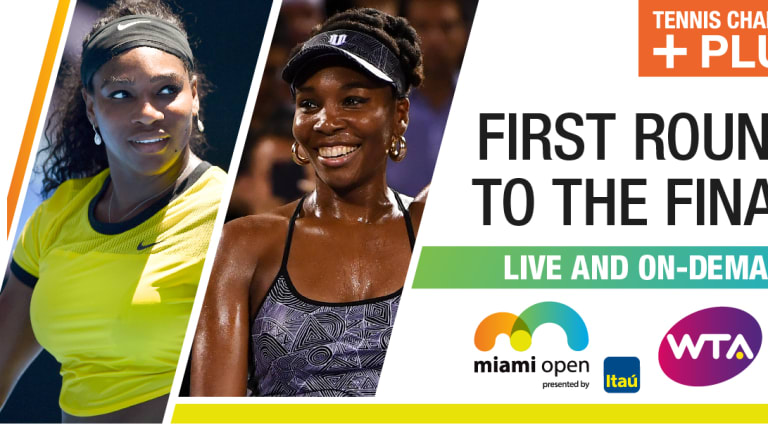KEY BISCAYNE, Fla.— Naomi Osaka’s hot streak had to end somewhere, and end it did on Friday at the Miami Open. World No. 4 Elina Svitolina brought the 20-year-old back to earth with a straightforward 6-4, 6-2 win.
“[Osaka was] coming here into the match with a lot of confidence after winning Indian Wells, so I was just trying to make it physical and challenge her,” Svitolina said. “In the end I was playing great tennis.”
Osaka certainly had a lot of momentum going in, though she was unlucky to feel sick ahead of the match. In the past two weeks she has scored impressive wins over multiple Grand Slam champions, former No. 1’s and even current No. 1’s—including Maria Sharapova, Karolina Pliskova, Simona Halep and, on Wednesday, Serena Williams.
"I think I've played more matches than I ever have back-to-back. I didn't really feel that tired, so that's a good thing," Osaka said. "I've played so many good players, and I've experienced a lot of new things, so I'm really happy about that."
It wouldn’t have been out of character to take out Svitolina as well, but the Ukrainian was too savvy.
“I was serving really good in the important moments and just trying to play with the wind,” Svitolina said. “I was just trying to play smart and move the ball.”
With gusts upsetting both players’ rhythm, Svitolina put pressure on Osaka while hitting less than half the number of unforced errors. Osaka slogged through 31 mistakes, while Svitolina committed just 13. The Japanese sensation couldn’t repeat her normal big-hitting winners, putting up just 20 with Svitolina beating her at her own game with 26.
The 23-year-old Svitolina's experience made the difference, and she’s certainly feeling fresher after a third-round loss in Indian Wells. She also beat Osaka a few weeks ago in Dubai by a similar score.
"I played couple of times against her, so I knew little bit where I have to stand, what I have to do," Svitolina said. "I have to adjust very quickly with my feet. Today was pretty good. I was on the ball almost all the time."
Match point from Svitolina's win over Osaka:
